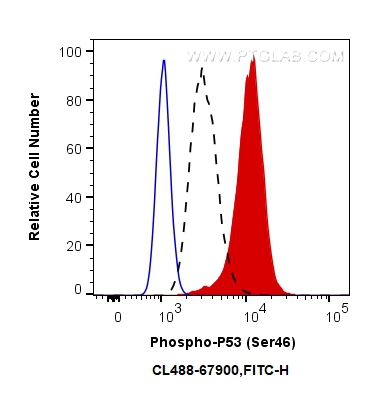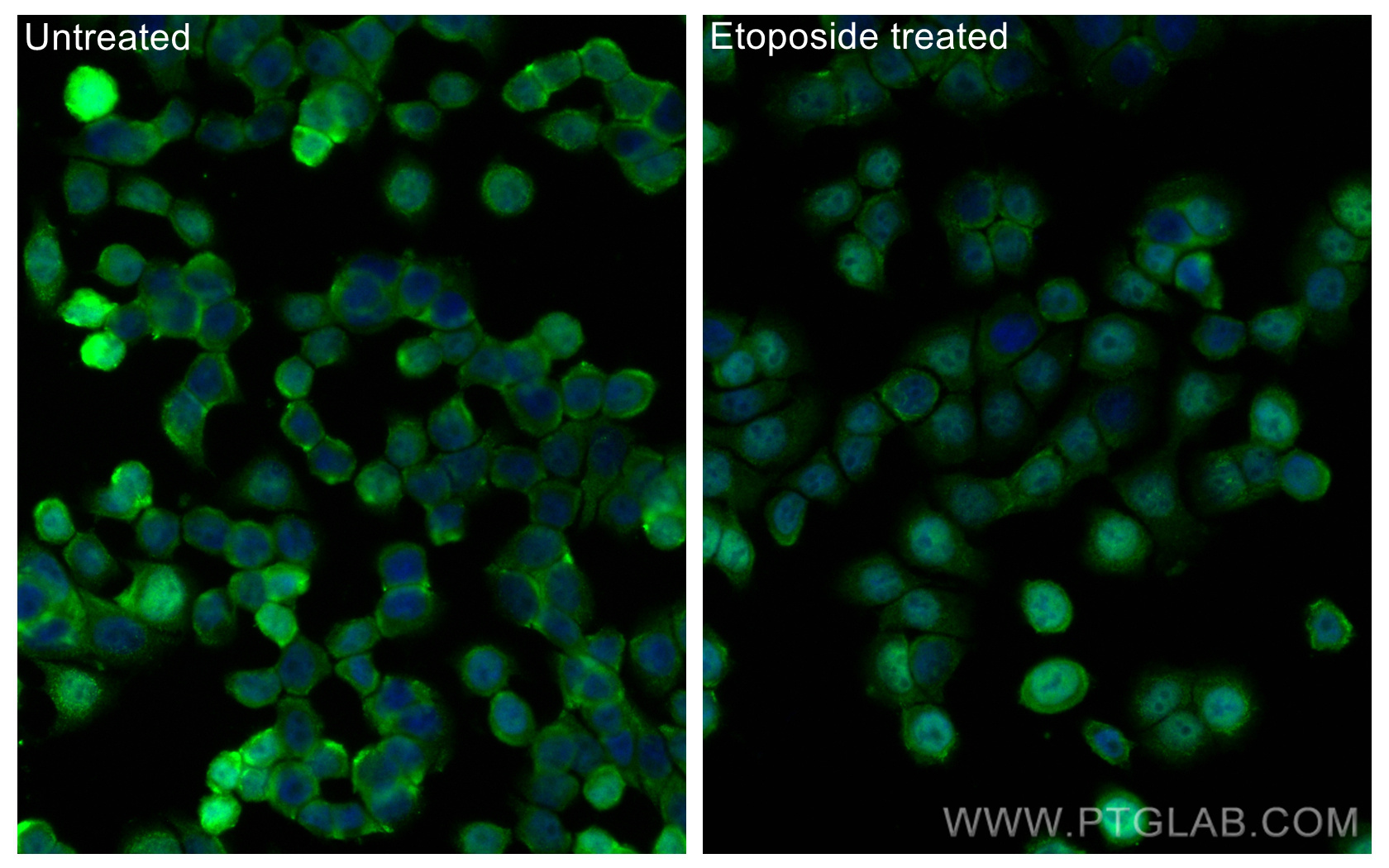验证数据展示
经过测试的应用
| Positive IF/ICC detected in | etoposide treated HT-29 cells |
| Positive FC (Intra) detected in | UV treated HT-29 cells |
推荐稀释比
| 应用 | 推荐稀释比 |
|---|---|
| Immunofluorescence (IF)/ICC | IF/ICC : 1:50-1:500 |
| Flow Cytometry (FC) (INTRA) | FC (INTRA) : 0.25 ug per 10^6 cells in a 100 µl suspension |
| It is recommended that this reagent should be titrated in each testing system to obtain optimal results. | |
| Sample-dependent, Check data in validation data gallery. | |
产品信息
CL488-67900 targets Phospho-P53 (Ser46) in IF/ICC, FC (Intra) applications and shows reactivity with human samples.
| 经测试应用 | IF/ICC, FC (Intra) Application Description |
| 经测试反应性 | human |
| 免疫原 | Peptide 种属同源性预测 |
| 宿主/亚型 | Mouse / IgG1 |
| 抗体类别 | Monoclonal |
| 产品类型 | Antibody |
| 全称 | tumor protein p53 |
| 别名 | TP53, P53, Tumor suppressor p53, tumor protein p53, Antigen NY-CO-13 |
| 计算分子量 | 44 kDa |
| 观测分子量 | 53 kDa |
| GenBank蛋白编号 | BC003596 |
| 基因名称 | P53 |
| Gene ID (NCBI) | 7157 |
| RRID | AB_2934585 |
| 偶联类型 | CoraLite® Plus 488 Fluorescent Dye |
| 最大激发/发射波长 | 493 nm / 522 nm |
| 形式 | Liquid |
| 纯化方式 | Protein G purification |
| UNIPROT ID | P04637 |
| 储存缓冲液 | PBS with 50% glycerol, 0.05% Proclin300, 0.5% BSA , pH 7.3 |
| 储存条件 | Store at -20°C. Avoid exposure to light. Stable for one year after shipment. Aliquoting is unnecessary for -20oC storage. |
背景介绍
P53 is a 53 kDa protein that is activated in response to alteration of normal cell homeostasis, including DNA damage, nutrient starvation, heat shock, virus infection, pH change, hypoxia, and oncogene activation. P53 maintains genetic stability by regulating different processes, such as cell-cycle arrest, DNA synthesis and repair, programmed cell death, and energy metabolism. In non-stressed conditions these proteins bind p53, ubiquitylate it and target it for degradation by the proteasome. In stressed conditions the function of the MdM2-MdM4 complex is blocked by phosphorylation, protein-binding events and/or enhanced degradation. (PMID: 19935675, PMID: 24379683)
实验方案
| Product Specific Protocols | |
|---|---|
| IF protocol for CL Plus 488 Phospho-P53 (Ser46) antibody CL488-67900 | Download protocol |
| Standard Protocols | |
|---|---|
| Click here to view our Standard Protocols |

